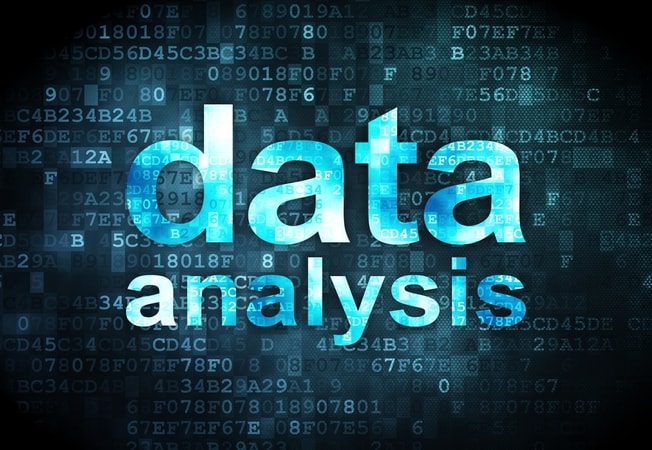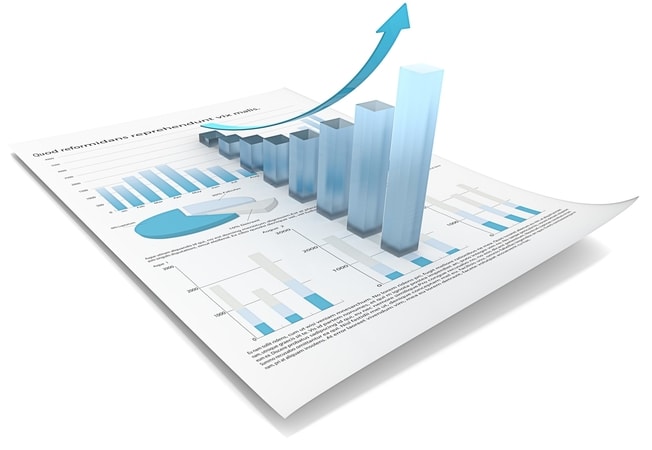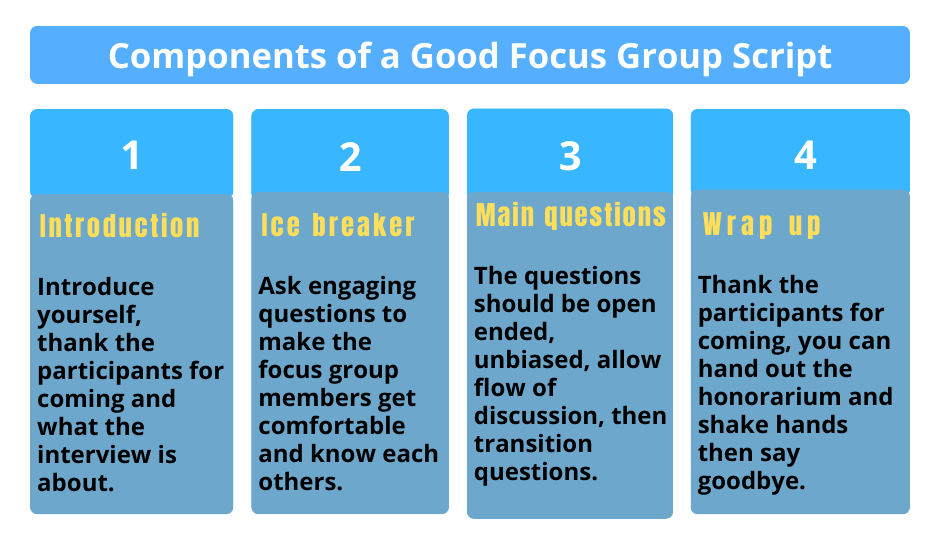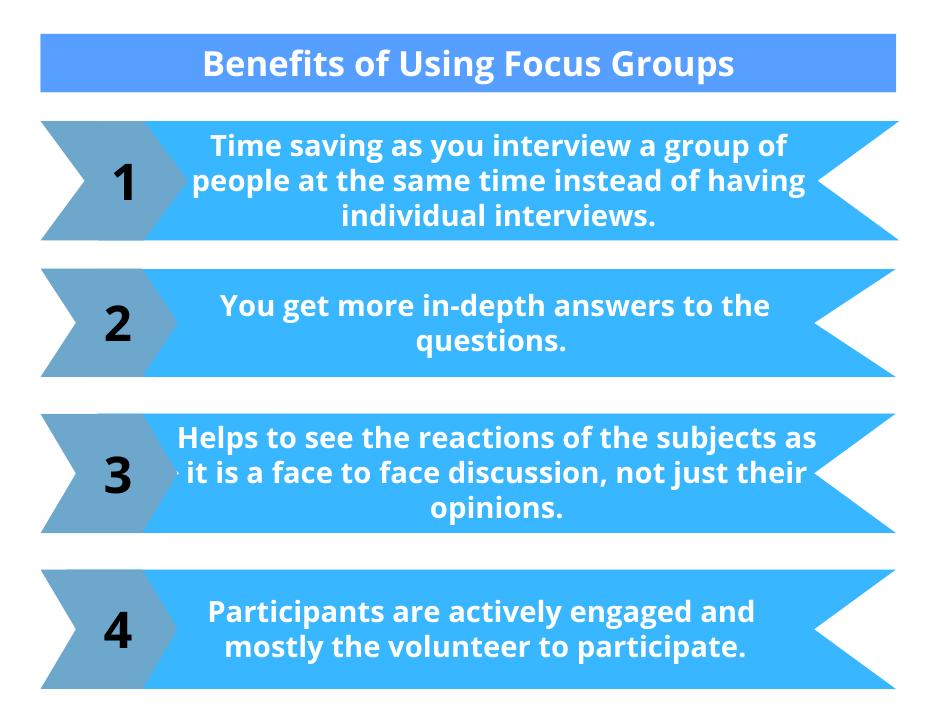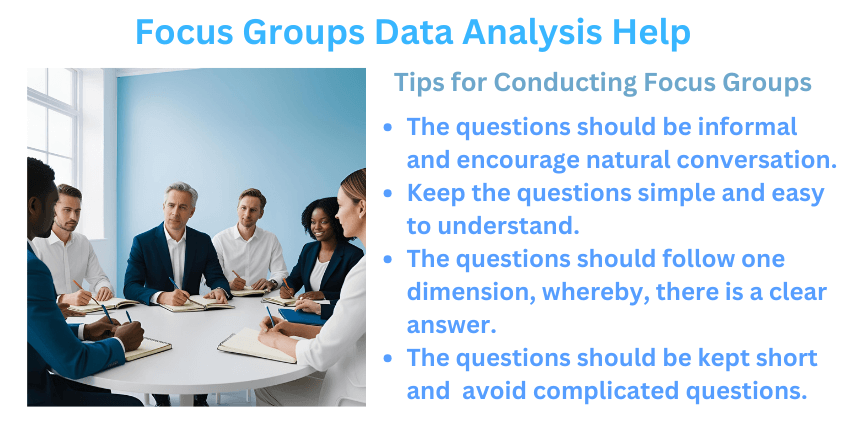Factors we consider when Analyzing Data from Focus Groups in Qualitative Research
Most researchers, PhD candidates, and other scholars opt to outsource qualitative data analysis services for focus groups after interviewing carefully-selected individuals in a topic of interest. Focus group data in qualitative studies may be dense and voluminous for professionals and academicians to analyze effectively while concentrating on their busy schedules and other commitments.
Outsourcing the best focus group data analysis help is, therefore, imperative to understanding and explaining themes, cultures, beliefs, and meanings that affect individual attitudes, feelings, and behaviors.
We are experts in the provision of qualitative data analysis services to help clients to summarize and interpret important themes, noteworthy quotes, unexpected findings, and implications as generated from focus group interviews and discussions.
This article contains detailed information about the factors that our focus group qualitative data analysts consider to help scholars, PhD candidates, students, professionals, and any other interested parties derive meaningful research findings from the collected information.
Benefits of Hiring Our Focus Group Qualitative Data Analysts
We are an online company that offers the best data analysis services for both qualitative and quantitative research. So far we have helped many PhD candidates, students, and researchers with their data analysis needs to accomplish study objectives. Some of the advantages of working with our focus group qualitative data analysts include:
- The online presence and all-time availability make it convenient for customers to contact us, enquire about our services, and place orders whenever they may need to.
- We value every customer, hence, ensuring each gets the best focus group data analysis help customized for their specific qualitative research needs.
- On-time delivery of every assignment given to us ensures that clients always submit the analysis reports to the receiving audiences before the due date.
- Our qualitative data analysis services are organized, systematic, collaborative, and verifiable, thus, producing reliable findings that are usable for decision and policy making, product and service improvement among other purposes across disciplines.
- We prepare and present thematic analysis findings in different formats depending on the client's needs, the type of receiving audience they hope to communicate to, and the desired impressions.
- Strict quality checks are carried out on every written document from our company to ensure it does not contain errors, inconsistencies, or plagiarism.
- During the focus group qualitative data analysis process, our professionals are keen to use procedures and techniques that are compatible with the study design and type of data at hand.
- We have a proven track record and are trustworthy to clients in Kenya and other countries.
In addition to their academic qualifications, our expert data analysts are well-vetted, trained, and experienced in different disciplines. Every assignment is matched with the best and most qualified analyst for quality results.
Analyzing Focus Group Data for Qualitative Research
Over the years, focus group interviews and discussions have been used in sociology, business marketing, and healthcare sectors to explore individual beliefs, behaviors, feelings, and attitudes towards a particular subject matter.
Today, the techniques have evolved to online focus groups that are not affected by geographical restrictions; through which one can save costs and reach diverse audiences. Being one of the effective techniques used in market research, focus groups enable scholars to collect data and analyze it to understand real customer attitudes, beliefs, opinions, and purchasing behavior.
Our qualitative data analysis services for focus groups help researchers to deduce logic from gathered information and present meaningful and reliable findings that can be used in the decision-making process across disciplines. Considering the factors discussed below enables us to offer the best focus group data analysis help to our clients.
1. Type of focus group analysis
We use various types of analytical techniques in focus groups. These include:
- Constant comparison analysis.
- Keywords- in context.
- Classical content analysis.
- Conversation analysis.
- Discourse analysis.
We have experts in all types of analyses for focus groups in qualitative research, hence, each assignment is matched with the most suitable analyst. Scholars and researchers wishing to hire someone to analyze data for a focus group in qualitative research can trust us for a systematic, verifiable, collaborative, and prompt process that produces reliable findings.
2. The qualitative analytic approach suitable for the focus group data
When tasked with analyzing data obtained from a focus group discussion or interview, we examine it to decide which qualitative analytic approach is suitable for the research process. Three distinctive perspectives are applicable in the qualitative analysis of focus group data depending on the researchers' intentions, objectives and the study subjects.
If the researcher's discipline requires a social constructivist analytic approach, we perfectly use it to evaluate how members in the group discussion collaborate on the issue under inquiry, attain consensus or fail to, and gain shared meanings pertaining to commercial products, social concerns, or communications.
Our focus group qualitative data analysts can also use phenomenological psychology to analyze individual data, especially in marketing research where leaders are interested in understanding customer behavior, perceptions, views, and opinions regarding a particular product/service.
We also analyze focus group data from an interpretive perspective. The analytic techniques are influenced by the purpose of the study, the complexity of the research design, and the extent to which one can draw conclusions and attain reliable findings using simple analysis.
3. The extent of analysis required to reveal the meaning
The extent of analysis depends on the purpose of the research, receiving audience for the findings, and the nature of collected data. We must, therefore, understand the extent of analysis required for the focus group data in qualitative research to achieve the desired objectives.
4. Transcribing the interviews
Transcribing audio and videotapes recorded during focus group interviews transforms and organizes them into a written format that is easy to understand. We organize the information into focus group transcripts that are easy to search among other documents in the record. Our expert data analysts are proficient in using relevant qualitative-data management software packages to assign codes to every emerging theme.
5. Major themes from the qualitative analysis
Themes are identified by carefully reading through the transcripts to assess whether they make sense pertaining to the research question. While reading, we annotate the transcripts and separate them into sections that facilitate the creation of themes. Reading from a thematic perspective is imperative in selecting the major themes and patterns represented in the focus group data.
Those who purchase data analysis services for focus groups from us get an absolute organization of themes that are extracted after careful consideration of the extensiveness, specificity, and intensity of the comments made by participants during focus group discussion.
6. Organization and categorization of data
Organizing and categorizing in qualitative research involve data coding and assigning themes to reference numbers. Calculating the frequency of codes and themes within and across focus groups or individuals gives an objective insight pertaining to the prevalence of a particular behavior, attitude, or feelings among subjects.
We use several techniques to ascertain the reliability of the focus group data including the extent to which the research participants agreed or disagreed on a subject and the frequency with which participants' opinions shifted during discussion.
7. Interpretation of themes and ideas in context
At the interpretation stage of focus group data in qualitative research, our team helps researchers to make sense of individual data sets, quotes, and analytically assess the link between the data as a whole.
We use a defined framework to interpret coded data obtained from focus group qualitative research methodology. The factors we consider when interpreting coded data include the context, internal consistency; frequency, specificity, extensiveness, the intensity of comments, and major ideas or concepts arising from the discussions.
The manner in which we interpret themes generated from the focus group interview or discussion depends on the context, discipline, purpose of the study, and the type of research question to be answered.
Our qualitative data analysis services for focus groups assist in establishing meaning from the themes and ideas arising from the focus groups, identify common responses across participants, implications of the findings, and applications in improving services, programs, and policies. Where unexpected research findings are obtained, an explanation should be provided along with recommendations on how future scholars can expand on the results.
8. Presentation of the final report on the findings
There are various methods and formats for presenting focus group qualitative research findings after categorizing, analyzing, and summarizing data. We present the findings depending on our clients' preferences, research design and purpose, the target audience, the nature of information available, and the impression they hope to create with the reader. With the best focus group data analysis help from our experts, one is assured of the best version or format of report that accomplishes their study purpose.
We assist researchers and scholars in creating a series of social media posts highlighting their major findings, slides for sharing with community members, organization leaders, or other relevant audiences, and executive summaries that can be shared with colleagues, elected officials, or interested stakeholders who can use such data to effect desired changes.
Whether preparing an oral, visual, or written presentation, our focus group qualitative analysts ensure it is customized for the clients' receiving audiences.
We complete reports that can be used in decision and policy-making, improving services and products owing to customer behaviors and perceptions in marketing research, education, healthcare, and other disciplines. The report must provide the audience with clear information pertaining to the research, context, methodology, objectives, and major findings.
9. The typical structure of a focus group final report
Our qualitative data analysis services also entail preparing formal reports that adhere to a defined structure with common elements as discussed below.
(a). Introduction/background information
In this section, we provide a description of basic information that informs the reader of the background of the qualitative research.
(b). Focus group methodology in qualitative research
The methodology section provides a description of focus group techniques and procedures used to collect the qualitative data. Our experts present the methodology section along with its added value to the subject under study. Every phase of the focus group discussion or interviews is detailed in the methodology section.
(c). The study design and objectives
We present extensive information about the study design, the number of focus group sessions used to collect data, and the criteria for recruiting the participants/respondents. The main objectives and questions of the focus group qualitative research are also described in this section.
(d). The qualitative findings obtained using focus group techniques
The findings are logically presented in terms of themes that emerged from the focus group data analysis. Each theme is presented as the heading, beneath which we provide its summary and major findings. Where more focus groups were used to generate qualitative data, our analysts use comparison for demographic insights and verbatim quotes from participants to support the themes. Where applicable, we present the themes in figures, graphics, and diagrams.
(e). Observations across focus groups
Where applicable, we present significant findings that emerge through the group discussion/interview sessions that are not part of the main study objectives. The observations provide insights that are indirectly relevant to the research topic.
(f). Appendices
When hired to analyze data for a focus group, we provide all relevant materials used during the discussions or interviews in the appendix section. These may include discussion guides and interview questions that were addressed throughout the focus group sessions.
10. Mechanics of style
After concluding the focus group data analysis in qualitative research and preparing the findings report, we review the writing to ensure clarity, consistency in communication, and proper format and presentation. Our qualitative data analysis services for focus groups help in ensuring complete compliance with essential style guidelines provided in the specified manual; including punctuation, spelling, capitalization, numbers, abbreviations, italics, and others that may be relevant in the type of writing.
11. Grammar and writing style
With several years of experience in data analysis and reporting on findings, our professionals understand the requirements of scholarly writing. When compiling and reporting the focus group findings, we ensure that the themes are presented with continuity, clarity, conciseness, and flow to improve the effectiveness of communication between researchers or scholars with their academic and professional audiences. In addition, our writing is compliant with all the rules and guidelines in grammar and usage to prevent ambiguity and eliminate communication barriers.
Whenever the need to hire someone to analyze data for a focus group in qualitative research arises, one can contact us for the best services. We are accessible globally through our website and available 24/7 for clients to reach out for consultation, place orders, and check work progress at any time of their convenience.
Generally, when hired to analyze focus group data in qualitative research, our experts ensure they:
- describe and justify the procedures and methods used,
- provide details of the process such as coding and thematic analysis,
- identify units of analysis, and emerging themes, and
- describe any software packages used.
Throughout the analysis, we ensure methodological integrity at every step towards generating the qualitative research findings that are compatible with the focus group study design, with all relevant supporting materials and quotes from participants. We are committed to offering the best focus group data analysis help for our clients to achieve their research purpose, goals, and objectives. Contact us today to hire the best qualitative data analysis experts for your thesis, dissertation, research papers, or projects.

